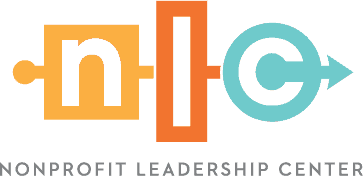What if you could measure how effective your nonprofit organization’s leadership, adaptability, management, technical capacity, and organizational culture are in less than 45 minutes? Using the TCC Group’s Core Capacity Assessment Tool® (CCAT), you can. The CCAT is an online, survey-based capacity assessment tool that collects information from organizational decision-makers to analyze your nonprofit and provide recommendations for ongoing improvement.
The CCAT tool represents decades of experience and research in capacity building — a nonprofit’s ability to deliver its mission now and in the future. It consists of 146 questions and takes 30 to 45 minutes for senior leaders and board members to complete. The CCAT assessment culminates with a final report that provides nonprofits with an analysis of strengths and challenges in nearly 40 categories, along with tangible recommendations to increase organizational effectiveness and long-term success.
Nonprofits can benchmark their CCAT scores alongside peer organizations, drawing on data from more than 5,000 participating organizations.
How to Implement the Core Capacity Assessment Tool at Your Organization
Effective organizations must consistently answer two questions:
-
- How well does our organization understand our current priorities?
- What must we do to continue setting goals, planning effectively, and implementing strategies to advance our mission priorities?
- How well does our organization understand our current priorities?
Answering these questions and creating plans to address them are made much clearer by conducting a CCAT assessment. The Nonprofit Leadership Center works with nonprofits to facilitate the CCAT assessment and develop organizational action plans to address findings.
The process consists of four steps:
Step 1: Orientation
Our NLC facilitator meets with key senior leaders, including board members, to discuss the CCAT process and its benefits.
Step 2: Online Survey
Key senior leaders and board members receive the CCAT online survey. It should take about 30 to 45 minutes to complete.
Step 3: Initial Analysis
Our NLC facilitator assesses the initial results and meets with your organizational point person to discuss key findings. Together, we prepare for a findings presentation and discussion with your nonprofit’s leadership team.
Step 4: Interpretation
Together with all senior leaders and board members, we meet to review and interpret your organization’s results and help you prioritize goals and next steps based on the recommendations.
As a leader who has used CCAT as an organizational tool and facilitates the assessment process, I can attest to the transformative nature of engaging in this work. Nonprofit leadership is about seeing and acting. The CCAT tool supports those efforts, unites stakeholders around core principles and serves as a useful assessment tool for collaboration and action.
Start Your CCAT Assessment
Contact us to learn more about the CCAT and how to implement the process at your nonprofit. Complete the form below to schedule a conversation and get started.


